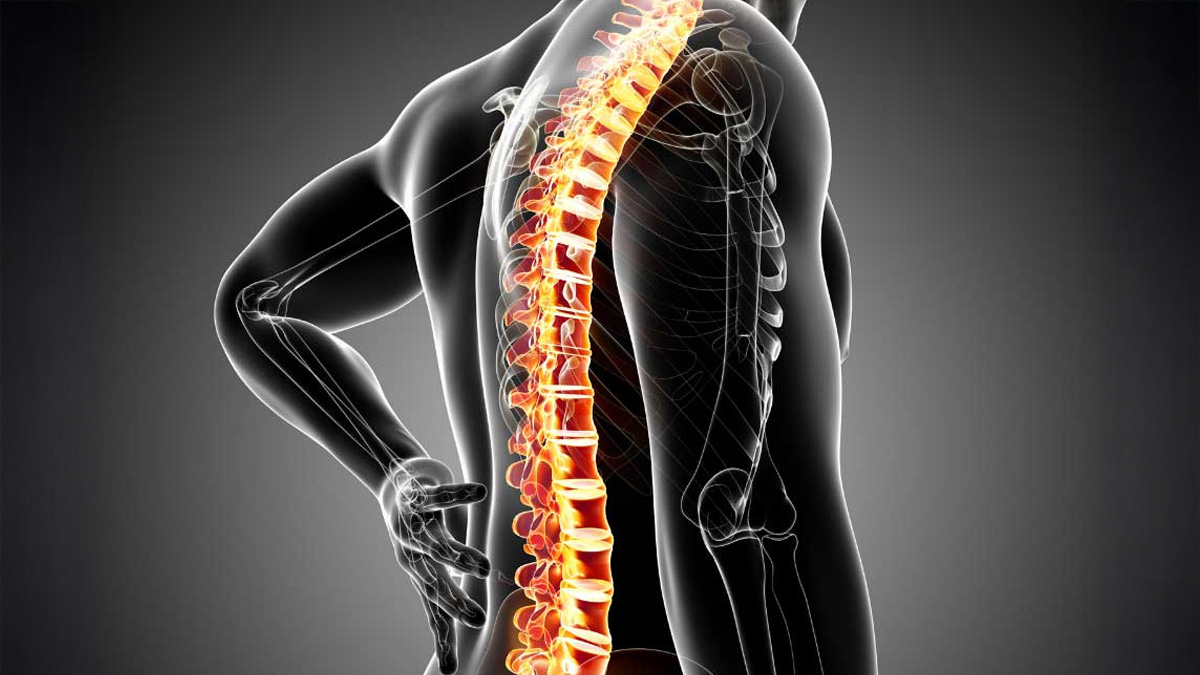
Veteran filmmaker Vikram Bhatt recently revealed his ongoing struggle with axial spondyloarthritis (axSpA), a painful and debilitating autoimmune condition. The 56-year-old director, known for his work in Bollywood, spoke candidly about the immense pain caused by the disease, as well as the impact it has had on his mental health. He even drew comparisons to actress Samantha Prabhu’s battle with myositis, emphasizing the challenges of living with an autoimmune disorder.
Table of Content:-
What Is Axial Spondyloarthritis?
Axial spondyloarthritis (axSpA) is a chronic inflammatory disease that primarily affects the spine, pelvis, and chest. This condition leads to pain, stiffness, and in severe cases, the fusion of bones, which can significantly limit movement. Many individuals start experiencing symptoms before the age of 45, with some even showing signs as teenagers. The condition is known for its progressive nature, making early diagnosis and treatment crucial.

Unlike other forms of arthritis, axSpA can also affect other parts of the body beyond the joints. Inflammation may impact the eyes, skin, and digestive system, leading to additional health complications. Despite being a relatively lesser-known condition, axSpA affects approximately 1% of the global population, impacting men and women equally.
What Causes Axial Spondyloarthritis?
While the exact cause of axSpA remains unclear, genetics play a significant role. A large percentage of individuals diagnosed with the condition carry the HLA-B27 gene, which is associated with a higher risk of developing autoimmune diseases. However, not everyone with this gene develops axSpA, and some people without the gene may still be affected. Other contributing factors include immune system dysfunction and environmental triggers, such as infections or gut-related issues.

Recognising the Symptoms of Axial Spondyloarthritis
The most common and persistent symptom of axSpA is chronic back pain, which is unique in its presentation:
- It lasts for more than three months.
- It does not result from an injury or mechanical issue like a slipped disc.
- The pain tends to improve with movement and worsen during rest or at night.
- Morning stiffness is common and can extend to the hips.
Also Read: Samantha’s Secret To A Powerful Morning—How The Wim Hof Breathing Technique Works
In addition to back pain, axSpA may cause:
- Severe fatigue and exhaustion.
- Inflammation of the fingers and toes (dactylitis).
- Digestive problems, including persistent diarrhoea.
- Skin conditions like psoriasis.
- Eye inflammation (uveitis), which can cause pain and blurred vision.
- Bone growth abnormalities, leading to spurs or calcification.

Can Axial Spondyloarthritis Be Treated?
Although axSpA is a lifelong condition with no known cure, medical interventions and lifestyle adjustments can significantly improve symptoms and enhance quality of life. Treatment options include:
Anti-Inflammatory Medications
Nonsteroidal anti-inflammatory drugs (NSAIDs) are commonly prescribed to manage pain and inflammation. These over-the-counter or prescription medications help alleviate discomfort and improve mobility.
Also Read: Ibrahim Ali Khan’s Trainer Spills The Secrets Behind His Ripped Physique
Physical Therapy and Exercise
Regular physical activity is essential for individuals with axSpA. Stretching, strength training, and low-impact exercises like swimming or yoga can help maintain flexibility and reduce stiffness. Working with a physical therapist can ensure a personalized exercise plan tailored to individual needs.
Steroid Injections
For severe inflammation, corticosteroid injections may be administered directly into affected joints to provide temporary relief. However, long-term use is not recommended due to potential side effects.
Bottomline
Vikram Bhatt’s openness about his diagnosis sheds light on the struggles faced by individuals battling autoimmune diseases. Awareness and early detection are crucial for managing axSpA effectively. If left untreated, the condition can lead to severe complications, including permanent joint damage and loss of mobility.
Individuals experiencing persistent back pain or unexplained joint stiffness should consult a medical professional for evaluation. Early intervention, lifestyle modifications, and a strong support system can help those affected lead fulfilling lives despite the challenges of axSpA.
Also watch this video
How we keep this article up to date:
We work with experts and keep a close eye on the latest in health and wellness. Whenever there is a new research or helpful information, we update our articles with accurate and useful advice.
Current Version